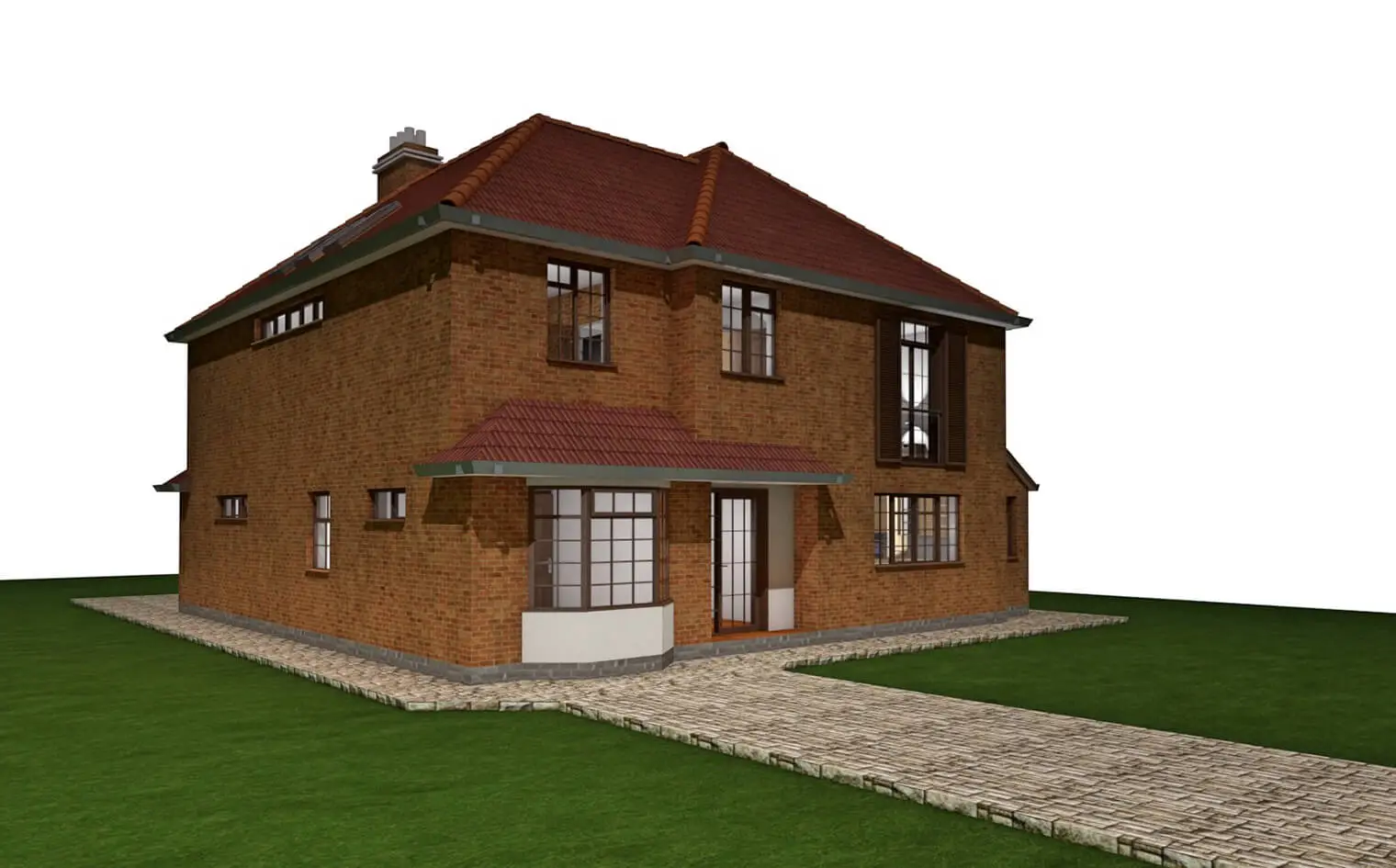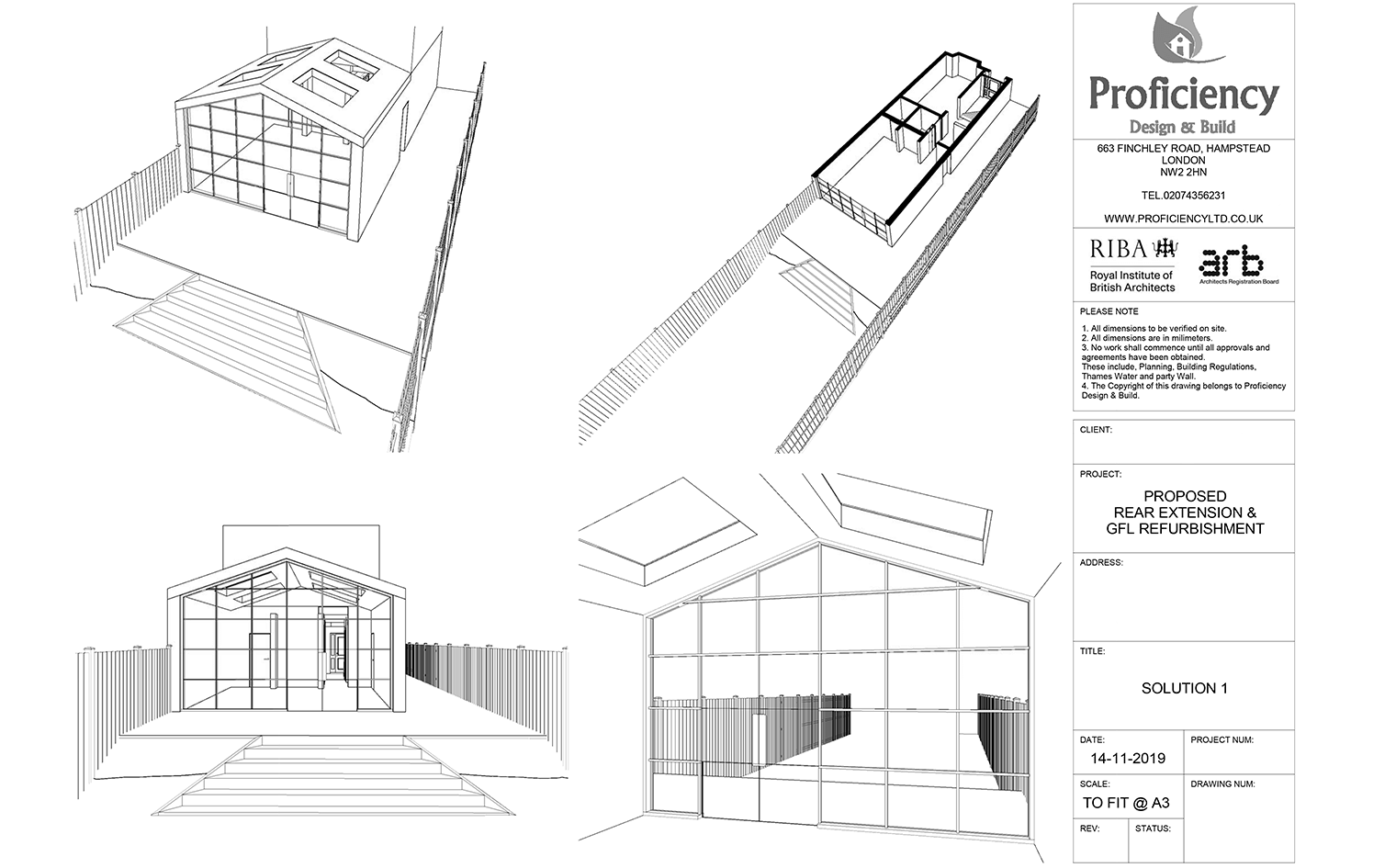
What Is an Architect's Certificate of Completion
Understanding what an architect's certificate of completion is and how it contributes to a construction project is crucial for those planning to sell the property after it is built. Conversely, it is also an important document for buyers who intend to take out a mortgage to finance the purchase of newly built property.
What are you going to find here?
What is the purpose of an architect's certificate?
An architect's certificate is also known as a CML Professional Consultants Certificate. The latter is technically the correct official term right now, but many people use the two interchangeably.

The purpose of the certificate is to verify that an architect has been involved with the construction project from start to finish and has overseen all major aspects of it. A CML architect's certificate is an important requirement in certain cases, like buyers intending to finance the purchase of new property through a mortgage.
Get in touch with an architect
If any issues arise that have been caused by structural design problems, you can hold the corresponding consultant liable for any damages. This is important for projects of any scale, not just large constructions.
You might also see the Council of Mortgage Lenders ( CML ) mentioned in the context of these certificates. There's no real difference between an architect's certificate and CML certificates.

When do I need an architect's certificate?
Whenever a mortgage is to be taken out on a newly constructed property, lenders will always require an architect's certificate of compliance. This certificate, a crucial aspect of architect services, may also be referred to as an architect's certificate of substantial completion. Without one, you will not be granted any mortgage deals by any lenders on the market.
This applies both to the person ordering the construction, as well as to any potential buyers who might be planning to take out a mortgage against the property.
If you have any plans to sell your building within the next six years, or plan to enter a rent-to-buy agreement with future occupants, you are going to need an architect's certificate.
- Budget your architectural drawings by learninghow much it costs to you to hire an architect. These tips will help to save money.
Summary of the cases where the certificate is required:
- You want to take out a mortgage to finance the construction
- A buyer wants to take out a mortgage to purchase the property once you are done building it
- You want to rent out your property under a rent-to-buy agreement
In all of those cases, obtaining financing will be impossible without a certificate that covers the building against structural problems.

Can a building be occupied without an architect's certificate?
Legally, the building can only be occupied if there is a valid occupancy certificate issued for it. This is different from an architect's final completion certificate and must be issued separately.
The importance of an architect's certificate only extends to cases involving mortgages. It does not have to be issued by default, although considering that mortgages typically come into play in most large-scale construction projects, it is a good idea to work with a qualified architect who can issue one as early as possible.
How long is an architect's certificate valid?
Architect's certificates are valid for six years after their date of issuing. This is an important period to keep in mind when long-term mortgages are involved.
The bank will usually still grant a mortgage that extends beyond that time, but you may need to keep in touch with your architect to certify the building at a later point as well.
The six-year deadline is more important when you are planning to sell the property several years after it has been constructed. If you intend to sell it more than six years down the road, you might want to wait before obtaining an architect's certificate. Otherwise, you might have to pay for one again down the road.
However, make sure that you have no plans to sell the building earlier than that. Obtaining an architect's certificate on short notice can be difficult and expensive.

Does an architect's certificate cover all types of defects?
While some people confuse architect's certificates with latent defects insurance, the two are not the same at all. A PCC architect's certificate (Professional Consultants Certificate) has a very narrow scope.
It only exists to certify that a building has been constructed according to all legal requirements and regulations. It provides legal coverage for taking out a mortgage, but its effect does not extend beyond that.
Can an architect's certificate be issued retrospectively?
A retrospective architect's certificate is still valid, provided it is issued according to all policies and regulations. It is not rare for people ordering construction projects to obtain the certificate after the construction is complete.
In fact, it can even be issued after the whole project has been completed. The important thing is that the architect is given enough time to fully review all aspects of the project and verify that it has been executed according to current standards and regulations.
Is an architect's certificate equivalent to an insurance policy?

An ABC architect's certificate is only relevant when dealing with mortgage lenders. It is not equivalent to an insurance policy and does not provide any special coverage in case any defects are discovered after the construction project is finished.
The only type of coverage that may be provided by an architect's certificate is related to structural design problems. Even then, combining it with additional insurance policies will improve your chances of making a claim in court.
This makes it important to secure a separate insurance policy if you want to keep your finances covered. A 10-year structural warranty is probably the most common choice in this regard. It will provide you with practically full coverage of all important aspects of the construction project.
Construction insurance policies you can take out:
- Contractors all risk insurance, which will cover your project against damages caused by your contractors
- Structural warranty to guarantee the structural integrity of the building
- Employers' liability insurance if you are personally employing any contractors or other professionals working on the construction site
- Latent defects insurance for any defects that only become apparent at a later stage
Insurances and other policies can be a tricky subject when working with contractors and architects on a construction project. It is important to understand the differences between the different types of certificates available on the market and obtain the ones that are specifically relevant to your situation. If there is a mortgage on the table, obtaining an architect's certificate is a crucial point that you should never ignore.
Clara Annesley
Clara Annesley is an interior design and construction content writer. She holds a BSc (Hons) in Architectural Design Technology from the University of West London. Clara specialises in residential construction for topics like health & safety, architectural design and writing cost guides for renovation and remodelling projects.